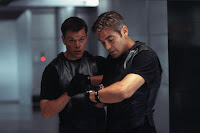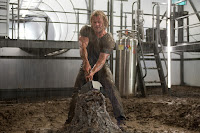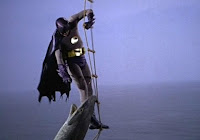In fact, now I’d like you to imagine the medical school your doctor attended. One where students are never taught what to do when things go wrong. Nobody ever practices clamping off blood vessels. Restarting a heart. They never get quizzed on mystery symptoms or offered practical tips on “how to do this quickly.” At this medical school, every procedure goes exactly as planned every time, no complications at all.
Which is why medical schools don’t do this. They teach the basics, sure, and show “perfect case” scenarios, but they also show prospective doctors all the ways things can go wrong. Going off one friend who went through med school, that’s most of what they do. They throw problems at students. They want to know how good doctors are at improvising and being creative. Because there’s only so much anyone can learn from clean, flawless examples. Eventually, if I really want to learn how to do stuff, I have to get messy.
Can you guess where I’m going with this?
Now it’s not uncommon when we start out to copy writers we like. I’m sure a lot of people reading this made their first tentative steps into writing by copying the genres and styles of writers they enjoyed—successful writers who had published a book, or maybe multiple books. If any of my early writing was still kicking around, I think we’d find a lot of it bore a strong resemblance to Bill Mantlo’s plot structures, dialogue, and pacing… at least until I started reading some of the Doctor Who books Ballentine was reprinting here in the
And this is absolutely fine when we’re starting out. It’s one of the most common ways we all learn the basics. We just copy things by experienced artists that we already know work. Things that have already been through the editorial process and don’t have any major flaws or problems.
Because art is such a unique, personal thing, though, all studying and copying good art does is teach us how to be like that particular artist. At some point we need to grow past mimicking other storytellers, and I think this is when bad stuff becomes important. Because if a problem needs to be fixed, I’m going fix it myway. And you’re going to fix it your way. And they’re going to do it theirway.
Thing is, I can’t learn what my way is if I never see any problems. Why would I need to? If everything I see if perfect, nothing needs to change. It’s why, back when I was working in the movie industry, I’d see so many directors come out of film school with lots of aspirations to be the next Scorsesee or Kubrick, but no idea how things actually happened on a working film set.
I’ve talked more than a few times about my weekend B-movie habits. And while the movies are almost always bad, I almost always learn something every weekend. Because I don’t approach them with the view of “let’s make fun of bad movies,” I look at them as “what is this doing wrong and how could I fix it?” Why doesn’t this reveal work? How could this pacing be fixed? What would make this character more interesting and get me invested in their problem?
There’s actually a whole industry for this in
A skill we can never develop if we never see any problems.
Next time…
I have no idea. Drawing a blank right now. Feel free to throw a suggestion down below, or if you’d like to see some more debate on your topic, drop a suggestion over on a Writers Coffeehouse video on my YouTube channel.
Until then… go write.
And solve some problems.










